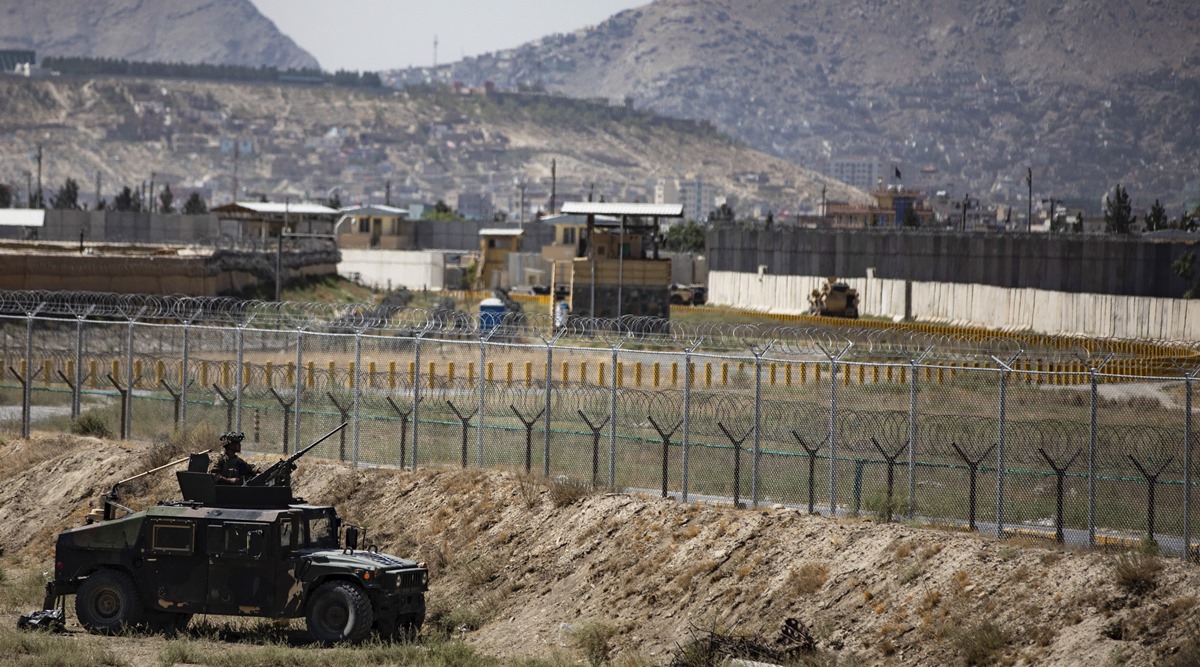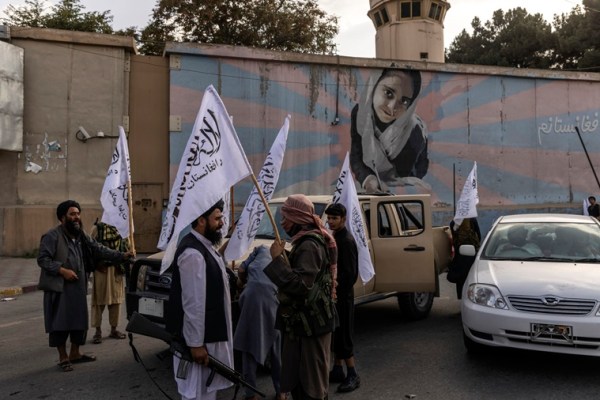Afghanistan-Taliban crisis Live Updates: France set to stop evacuations from Friday evening onwards

 Taliban members outside the closed United States embassy in Kabul, Afghanistan. (Image/The New York Times)
Taliban members outside the closed United States embassy in Kabul, Afghanistan. (Image/The New York Times)
Chaos persists at Kabul airport as Taliban discuss new government
As lethal mayhem persisted outside the Kabul airport, with thousands of terrified Afghans trying to flee, the Taliban have reached out to a former Afghan president, Hamid Karzai, and to Russia in an attempt to fulfil their pledge to form an “inclusive” government and defeat holdouts against their rule.
Little in the Taliban’s history suggests a readiness to compromise on their harsh Islamist principles or to share power, but the United States has warned the militant group that going it alone will result in continuous conflict and isolation. In this context, Karzai, who led the county between 2001 and 2014, appears to have emerged as a possible mediator.
What happens to India’s ‘plurilateralism’ after Taliban takeover of Afghanistan
In his recent book titled The Indian Way (HarperCollins, 2020), Foreign Minister S Jaishankar, wrote: “It is time for us to engage America, manage China, cultivate Europe, reassure Russia, bring Japan into play, draw neighbours in, extend the neighbourhood and expand traditional constituencies of support.”
This approach of international and regional relations fitted in his view of “plurilateralism”, which relied, in particular, on the will to partner with countries that were not partners themselves: “If India drove the revived Quad arrangement, it also took membership of the Shanghai Cooperation Organisation. A longstanding trilateral with Russia and China now coexists with one involving the US and Japan”. Jaishankar defined this strategy as “a parallel pursuit of multiple priorities, some of whom could be contradictory” and ridiculed those who did not understand that Indian initiatives that seemed unnatural were the hallmark of the new “Indian way”.

“평생 사상가. 웹 광신자. 좀비 중독자. 커뮤니케이터. 창조자. 프리랜서 여행 애호가.”
